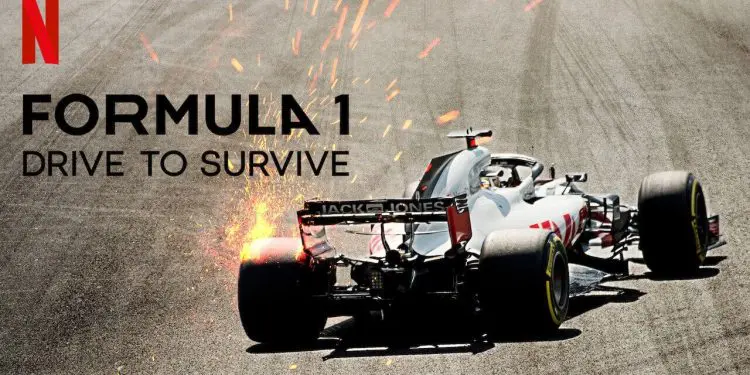As the seventh season of Netflix’s popular Formula 1 documentary, Drive to Survive, hits the screens, anticipation is high. The series, which has been a game-changer for the sport, has left an indelible impact on F1, offering fans an up-close and personal view of the high-octane racing world.
Drive to Survive has managed to successfully tap into the thrilling and sometimes tumultuous world of F1. With the impending departure of fan favorites Guenther Steiner and Daniel Ricciardo, and the controversy surrounding Christian Horner that dominated 2024 headlines, the upcoming season promises to shed light on these dramatic developments.
Netflix’s Drive to Survive, or DTS as it’s commonly known, is a groundbreaking show that has redefined the way sports documentaries are made. It debuted following the success of Amazon Prime’s All or Nothing series which initially covered the American Football franchises before branching into other sports. However, it’s Netflix’s unique approach that has captured the audience, prompting similar series in sports like Rugby Union, Tennis, and Golf.
A key element of DTS’s success lies in the unprecedented access it provides to behind-the-scenes happenings. When Liberty Media took over F1, they decided to lift the veil on the sport, a stark contrast to Bernie Ecclestone’s more guarded approach. This openness, coupled with less restrictive social media policies, has helped boost fan engagement and increase the sport’s popularity. The simultaneous advent of DTS has only amplified this effect.
The show’s impact is evident in the rising popularity of F1, particularly in the US. Following the lifting of Covid restrictions, F1 events have witnessed record-breaking attendances. The burgeoning demand in the United States led to the addition of Miami and Las Vegas to the F1 calendar, joining the Circuit of the Americas. This is a significant achievement for a market that F1 has been eyeing for decades.
Despite its undeniable success, DTS hasn’t been without its share of controversies. Max Verstappen, for instance, initially distanced himself from the series due to its sensationalist editing. Moreover, the show has been criticized by seasoned F1 fans for its perceived careless editing, a flaw that is expected to be addressed in the upcoming season.
Nevertheless, the series has managed to secure participation from all teams, which is a testament to its success. It has also helped broaden the appeal of the sport beyond hardcore fans, making stars out of the drivers and attracting a wider audience.
It’s difficult to quantify if DTS has the same impact it had five years ago. However, one thing is clear: it has left a significant imprint on the world of F1. More people are now interested in the sport, securing a more promising and relevant future for it than ever before. The anticipation for the seventh season of Drive to Survive is proof of the series’ lasting success and the pivotal role it plays in the ever-evolving world of Formula 1.







